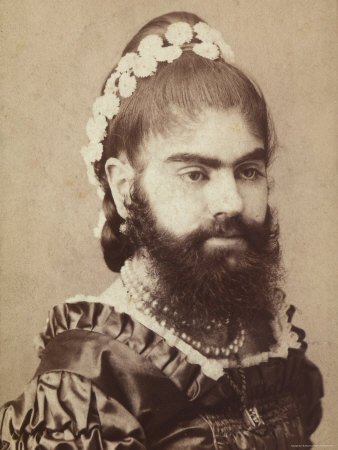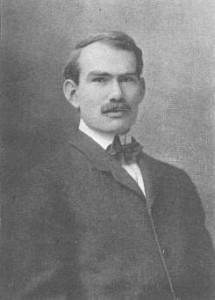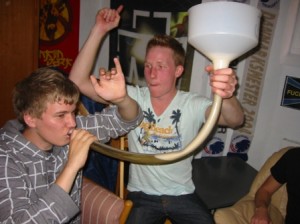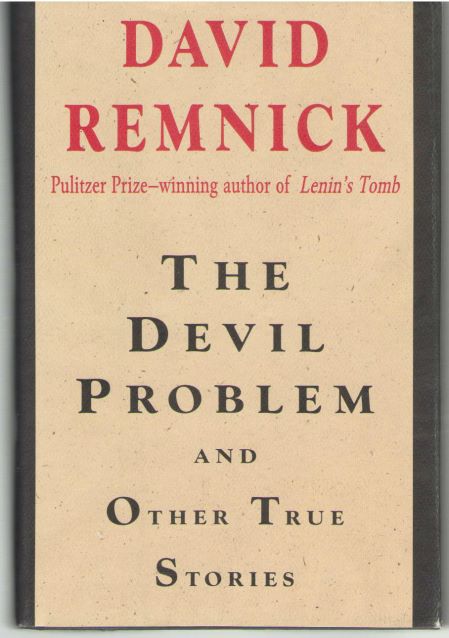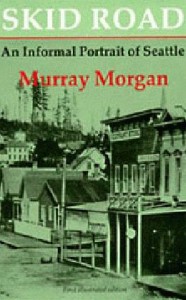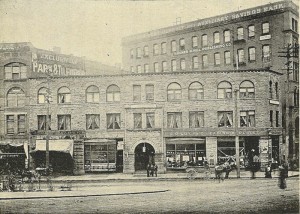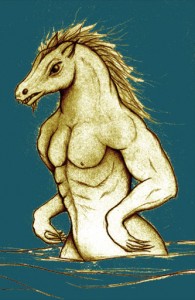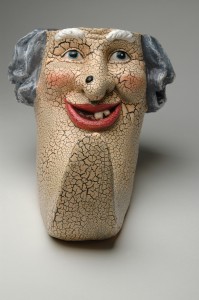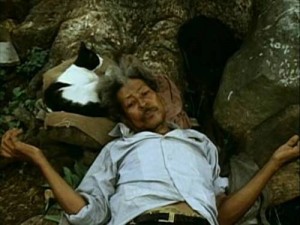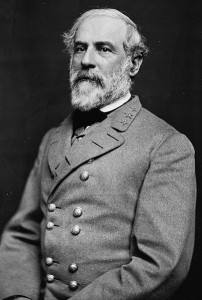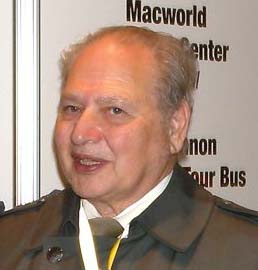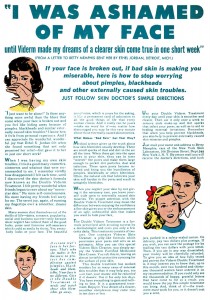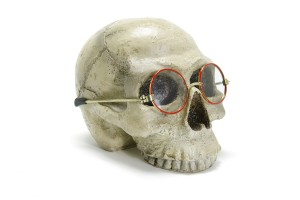If I’ve learned one thing from reading Old Timey newspapers, it’s that nothing good ever happened in a New York barbershop during the 1880s. No one ever went in, got a shave, and emerged the better. These shops were full of nonstop drunkenness, insults and bloody fisticuffs. You would have been safer at a cock fight in an opium den.
In a story I came across recently in the February 12, 1887 issue of the Brooklyn Daily Eagle, a young woman being teased about her alleged hirsuteness led to a wild melee. The story:
“Julia McEvoy, a rather good looking young woman, who says she is 23 years old, was arrested yesterday afternoon by Officer Stevens, of the Sixth Sub Precinct, on a charge of malicious mischief preferred against her by Michael Bria, an Italian barber, whose store is at 455 Graham avenue. Miss McEvoy was very indignant over her arrest and stoutly proclaimed her innocence. When questioned she said she had been the barber’s housekeeper.
She was in the store yesterday afternoon when a friend of her employer’s entered. He seemed to be in a jocular mood and amused himself by poking fun at Miss McEvoy. The latter did not mind this until the stranger picked up a razor and invited her to have a shave. The young woman considered that this involved an unpleasant implication and became indignant at the proposition. She informed the stranger that he was carrying this fun too far, and requested him to desist. He thought, however, that the fun was very mild, and had no intention of relinquishing it. Indeed, Miss McEvoy’s fiery eyes only served to give it keener relish.
 Then, according to the young woman’s story, he chased her about the store. It was a very lively chase. They jumped over and around chairs and tables, most of which were soon upset. Though Miss McEvoy is a nimble young woman, she was not agile enough for her tormentor, her skirts seriously impeding her movements. The stranger finally caught her and renewed his proposition to shave her. Miss McEvoy, by that time was really angry, and after she expressed her opinion of him in a manner more vigorous than the man thought the occasion demanded. He also grew angry and a war of words ensued between the two.
Then, according to the young woman’s story, he chased her about the store. It was a very lively chase. They jumped over and around chairs and tables, most of which were soon upset. Though Miss McEvoy is a nimble young woman, she was not agile enough for her tormentor, her skirts seriously impeding her movements. The stranger finally caught her and renewed his proposition to shave her. Miss McEvoy, by that time was really angry, and after she expressed her opinion of him in a manner more vigorous than the man thought the occasion demanded. He also grew angry and a war of words ensued between the two.
The hot Southern blood of the stranger, who was an Italian, was soon aroused, and when Miss McEvoy expressed her opinion of him in a more unendurable form than she had yet used he seized her and pitched her through a large window pane of glass. She escaped without injury, and was about to re-enter the store when the officer appeared. Mr. Bria, who had been absent a part of the time, returned at this moment, and seeing the damage done to this property made the charge against her on which she was arrested.
Miss McEvoy, when taken to the station house. expressed the belief that it was rather cruel to have her arrested after being used as an irresponsible missile instead of being an actual misdemeanant. When Mr. Bria was seen this morning he seemed to have some doubts as to who the actual culprit was. He insinuated that Miss McEvoy had been drinking a little beer. She was not really his housekeeper, but was only employed by him from day to day. The stranger’s name could not be learned. When the case was called in Justice Naecher’s Court this morning Bria did not appear, and Miss McEvoy was discharged.”

